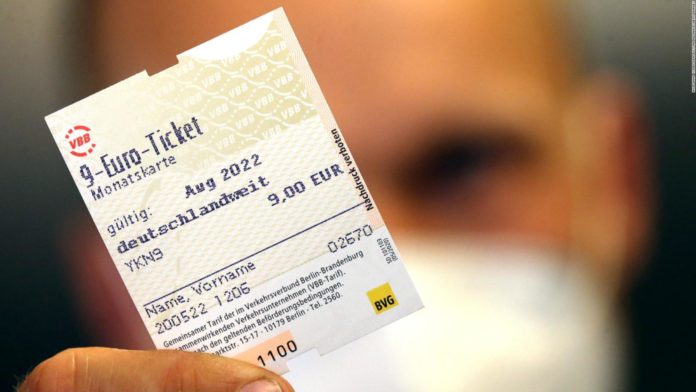
A €9 rail and bus ticket rolled out in Germany this June has seen a saving of two million tonnes in carbon emissions, an industry association said as the country debates an extension.
The ticket is valid nationwide on buses, subways and regional trains and was initially introduced as part of an inflation-reducing package by the current government coalition.
While the main objective was to relieve inflation for residents, many tourists enjoyed the perks of cheap travel throughout the country. The Lonely Planet recommended combining the benefits of the €9 ticket with the efficiency of long-distance trains.
The initiative was due to end tomorrow, but the public transport association VDV has announced its pollution savings of 1.8 million tonnes — the equivalent of the annual C02 output from almost 388,000 vehicles; it looks like the programme may stay in place.
One in ten users of the ticket said it prompted them to use public transport instead of cars for a least one journey a week, VDV said, citing a survey of 6,000 people per week.
52 million tickets were sold in total. Ten million people who already have regular monthly public transport tickets also benefited from the cheap fares.
Chancellor Olaf Scholz said the measure was ‘one of the best ideas’ his government had introduced and has vowed to hold talks on prolonging the measure.
Finance Minister Christian Lindner has however voiced opposition, warning that an extension would cost the treasury ‘over €14 billion.’
While the coalition hash this out, some districts have implemented their own follow-ups.
Berlin is in the early stages of offering a €9 monthly ticket for inner-city travel for the last three months of the year.




